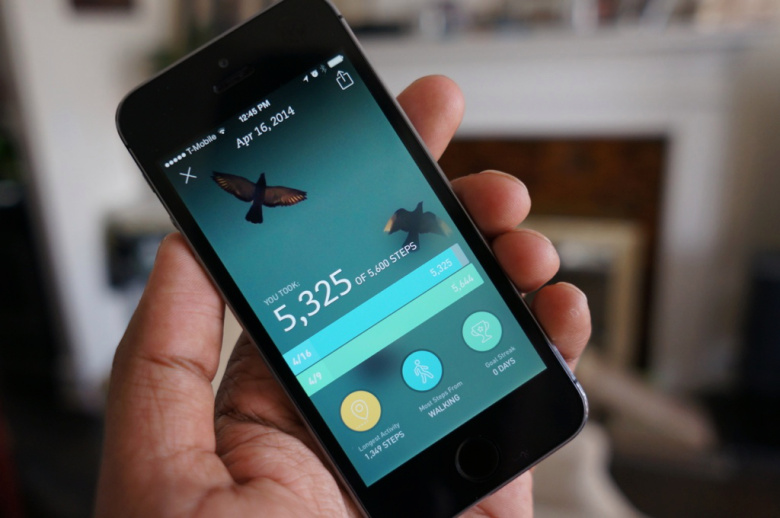23 Apr 2014
By Belle
An app to track your driving and the most connected man in the world: Quantified Self weekly links
1. Driving Curve [iOS]

We've seen a couple of devices that can track your driving and send stats to your phone, but Driving Curve works without extra hardware. The iOS app tracks your acceleration, braking speed and fuel usage, and will be coming to Android soon.
The app is free, and this TechCrunch post makes it sound like selling your data is something the founders are considering, which I'm not a fan of:
Driving Curve’s founders are still working on a monetization model, but they say that the popularity of smartphones will allow them to collect data that can be useful for a wide range of companies.
2. Breeze [iOS]

This is new app from Runkeeper works in a similar way to Moves, or Fitbit's Mobile Track. It uses the M7 in the iPhone 5s to grab your step count during the day, and activates your phone's GPS when you go for a long walk or run to track where you go.
Although you can turn them off, the app's main differentiator is a constant barrage of push notifications to make you aware of your activity and motivate you to do more. Although I agree with the team behind the app that passive tracking is useless if you're not made aware of your progress, in practice I've found the notifications to be mostly useless. Telling me I just went for a walk, for instance, isn't helpful—I know I just went for a walk.
The app includes a step goal which automatically adjusts every day to be an average of your past seven days' activity. I like that in theory, but I found I was a lot less motivated to hit that goal than the one I've set for myself on my Fitbit.
Still, if you're looking for a free app to help you track your daily activity and you have an iPhone 5s, Breeze is a lot prettier than the Fitbit app (though we can't get that data for your Exist account like we can with Fitbit).
3. The world's most connected man
Whether Chris Darcy is really the world's most connected man or not, I love the way he's connected to his environment:
"The house knows my behaviours," he says. "If I get really stressed out and don’t sleep well, when I wake up the light is a certain colour, the room a particular temperature, and certain music plays. My entire life is preconditioned based on all this information that I collect in real time."
4. Human generator for your wearables
I think we can all agree battery life is one of the biggest issues with wearables so far. It may be years before we see it, if at all, but researchers are working on a generator powered by body heat that could remove the need for batteries at all.
5. Connected home spy
The idea of having everything in my house connected seems both fun and convenient, but this story shows how being connected can get out of hand...
I'd fire up the companion SmartThings app on my phone and check the activity grid for a readout of when my door had last been opened and closed. I'd even monitor the temperature over a period of days to get a sense of how much my house sitter was blasting the A/C and, consequently, hiking up my electric bill.
(spoiler: he confronts his friend who's house sitting with data that proves they weren't holding up to their promises)
More:
- Saved: money tracking app [iOS]
- More Fitbit Force trouble
- Why Intel shouldn't get into wearables
- Samsung Gear Fit
- Wearables are growing on us
- Pavlok: a proposed wristband to shock you into better habits
- Fitbit partners with HTC
Image credits: Driving Curve, VentureBeat
Subscribe Keep up to date with the Exist blog. Delivered to your inbox.